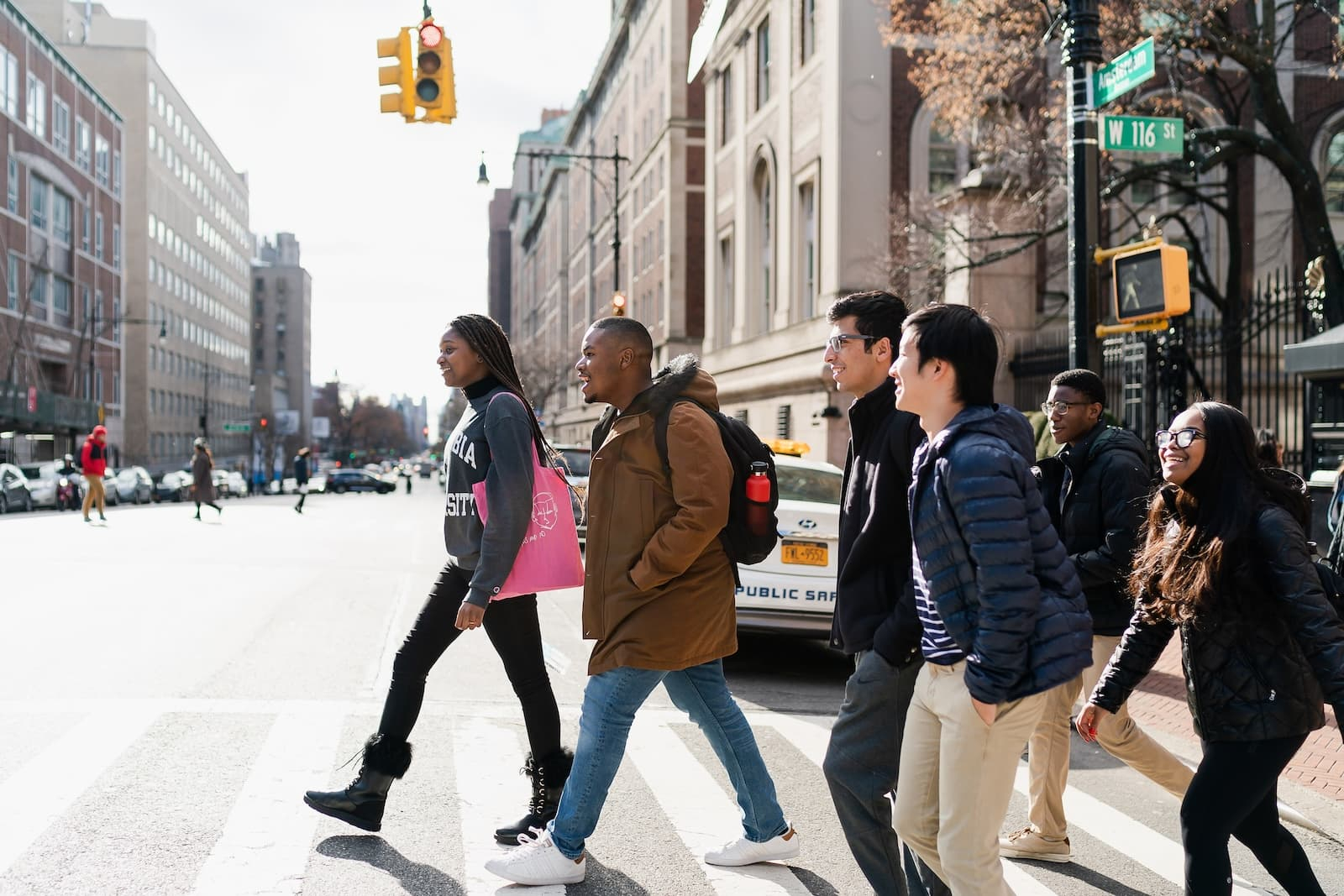Students at Columbia thrive within a campus community committed to their growth and achievement. A wide array of resources is available to support all our students academically, socially, and professionally as they transition into college life and prepare to engage with different communities. The unique experiences and perspectives that each student brings are essential to our vibrant community, fostering inclusivity and enriching the overall Columbia experience.
1st
African American advocacy group on a multi-racial campus in the US
20%
of first-year students are the first generation in their families to go to college
30%
of first-year students are underrepresented students of color
Student Organizations
- Cultural Student Organizations
There are over 40 student organizations at Columbia, advised by Multicultural Affairs, that represent numerous cultural and ethnic identities. These groups include pre-professional, performance, and various Greek Life organizations.
- Students of Color @ Columbia
Students of Color (SOC) @ Columbia provides students with cultural student group advising, events, education, advocacy and other resources that help to create a campus environment where all students can explore and better understand racial and ethnic identities, histories, experiences and communities.
- Student of Color Advisory Board
The Student of Color Advisory Board (SoCAB) is part of the Multicultural Affairs Advisory Council (MAAC). SoCAB works with Multicultural Affairs, the offices on the Students of Color Resource Team and other offices across Columbia to inform and provide information that address experiences impacting undergraduate students of color in Columbia College and Columbia Engineering.
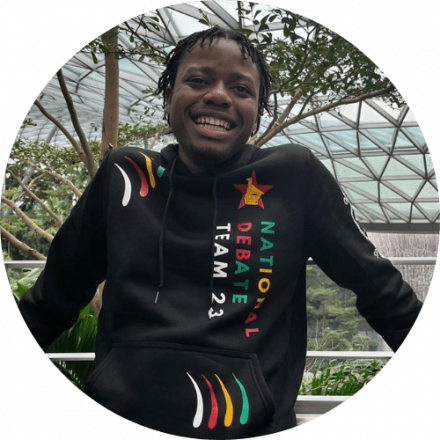
"The Core has made me intimately aware of how our own cultural and academic backgrounds may lead us to varying interpretations of similar issues. In the Illiad for example, one's cultural identity shapes the extent to which they value Achilleus' prioritization of his own honor over the resolution of the Trojan War. I value the range of possible ways of knowing that the Core creates room for."
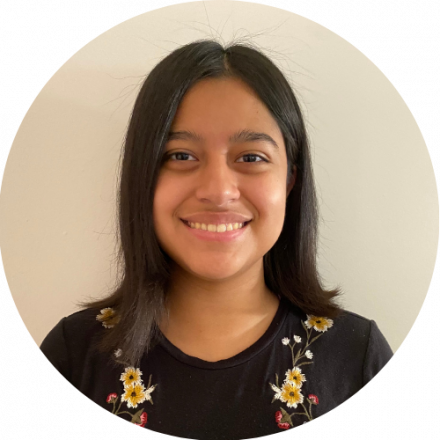
"Being a FLI, student of color from California, Columbia was definitely a different community from home. The FLI @ Columbia and Multicultural Affairs programming have been very helpful with allowing me to explore NYC at no-cost. Also, the weather change was also a struggle, but the FLI Coat Drive is such a good resource!"

"The Core Curriculum provides a space and education for me to encounter new worldviews. To engage in discourse with people from all cultures, nationalities, ways of thinking, religions and more promotes an educational foundation built on the notion of learning through conversation and experience. The Core forces me to get out of my bubble, making me not only a more well-rounded global citizen but also a more curious one too."
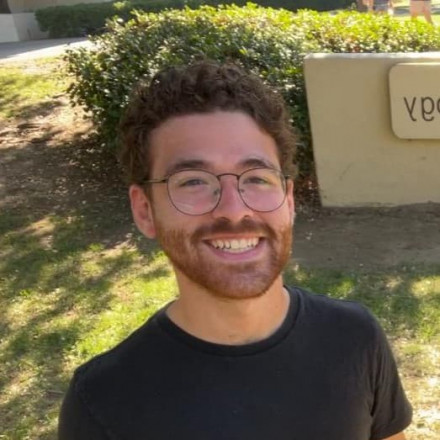
"I've never been surrounded by a more diverse group of people who are also somehow more similar to me than anyone else I've encountered in my life. Everyone here shares a relentless drive and passion for what they want to do, it's extremely motivating to find yourself surrounded by such a determined group of peers. It's also eye-opening that these same peers are also from such different walks of life, both on cultural, religious, social and economic levels.”
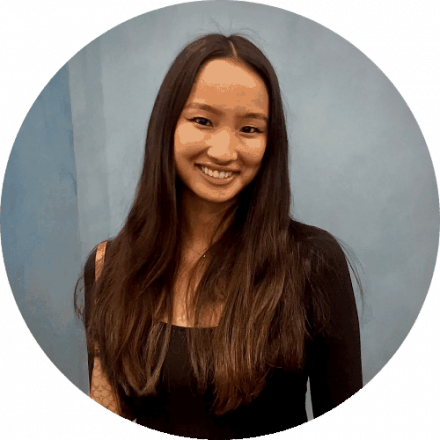
"Despite the stark contrast between my home in Honolulu and New York City, my transition to Columbia was very seamless. This was largely due to the community and friendships I quickly developed within my classes, residence hall and student organizations. My professors, TAs and advisers also supported me academically."
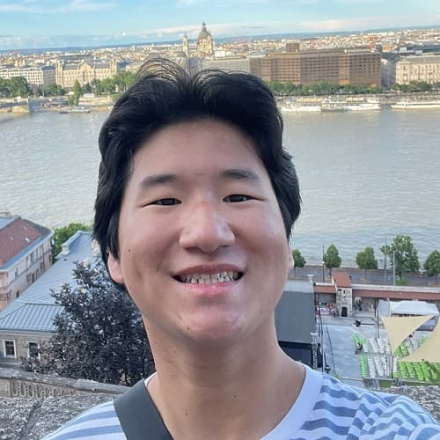
"The communities I've joined on campus give me a sense of home. In the Korean Students Association, I found a community of supportive people that I share my Korean identity with. They really gave me a sense of belonging at Columbia. And at the Columbia Space Initiative, I've found a group of peers that love rockets as much as I do!"
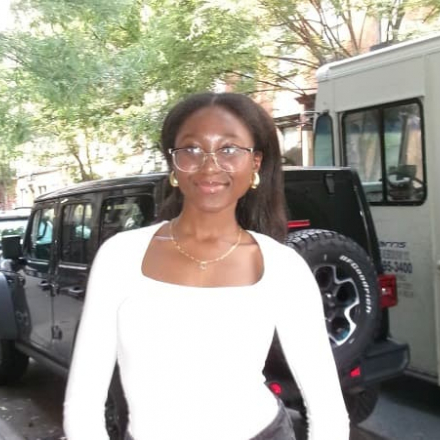
"There are identity-based groups that host fun events and mixers. There’s a bunch of spots on campus to hang out, like under trees, inside Joe’s Coffee or at JJ’s Place at 2:00 a.m. I love sitting on the Butler Lawns or on the stone benches outside of John Jay. Having so many spaces to just relax with my friends on campus makes me feel at home."
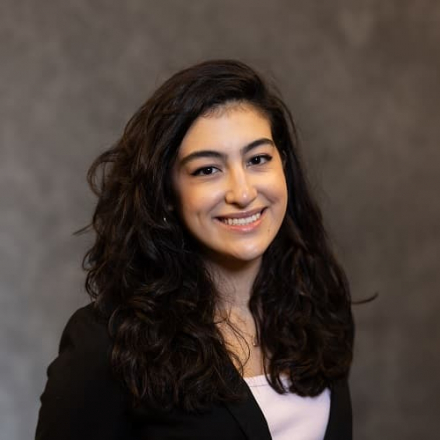
"The vibrant Latino community on campus has truly allowed me to feel at home. Coming from Miami, and graduating from a high school that was predominantly Latino, I was excited to step into a community that was truly diverse with people from all over the world, but also nervous that I might lose my Spanish or not find my people here. However, my experience has been the exact opposite, with there being many Latino orgs on campus, and I was able to find fellow Venezuelans through the Venezuelan Student Association!"
If I speak a language other than English, may I be exempt from the Foreign Language requirement in the Core Curriculum?
Yes, if you are fluent in another language, and you pass the placement exam on campus, you may be exempt from the foreign language requirement.
As an undocumented student, can I apply to Columbia?
Yes. Columbia admits students without regard to citizenship status. Additionally, for admissions purposes, undocumented students are evaluated under our general need-blind policy, which means we evaluate admissions applications without regard to financial need.
